- Home
- Lisa Kleypas
Love in the Afternoon Page 13
Love in the Afternoon Read online
Page 13
Although he was weary from the twelve-hour journey from London, and he was starved and travel dusty and in an unbelievably foul temper, Christopher found himself riding to Ramsay House. It was time to put a stop to Beatrix’s meddling once and for all.
Dark was lowering by the time he reached Ramsay House, shadows creeping from the woodlands until the trees resembled curtains drawn back to present a view of the house. The last vestiges of light imparted a ruddy glow to the brick and glittered on the multipaned windows. With its charming irregular roofline and sprouting chimneys, the house seemed to have grown from the fertile Hampshire land as if it were part of the forest, a living thing that had sent down roots and was reaching toward the sky.
There was an orderly bustle of outside staff, footmen and gardeners and stablemen, retiring to the indoors after the day’s labors. Animals were being led to the barn, horses to the stables. Christopher paused on the drive for a short, staving moment, assessing the situation. He felt apart from the scene, an intruder.
Determined to make the visit short and efficient, Christopher rode to the entrance, allowed a footman to take the reins, and strode to the front door.
The housekeeper came to greet him, and he asked to see Beatrix.
“The family is having dinner, sir—” the housekeeper began.
“I don’t care. Either bring Miss Hathaway to me, or I’ll find her myself.” He had already resolved that the Hathaway household would do nothing to distract or divert him. No doubt after a summer spent with his cantankerous dog, they would hand Albert over without a qualm. As for Beatrix—he only hoped she would try to stop him, so that he could make a few things clear to her.
“Would you care to wait in the front parlor, sir?”
Christopher shook his head wordlessly.
Looking perturbed, the housekeeper left him in the entrance hall.
In no time at all, Beatrix appeared. She was wearing a white dress made of thin, flowing layers, the bodice wrapped intricately over the curves of her breasts. The translucence of her chest and upper arms gave her the look of emerging from the white silk.
For a woman who had stolen his dog, she was remarkably composed.
“Captain Phelan.” She stopped before him with a graceful curtsy.
Christopher stared at her in fascination, trying to retain his righteous anger, but it was slipping away like sand through his fingers. “Where are your breeches?” he found himself asking in a husky voice.
Beatrix smiled. “I thought you might come to fetch Albert soon, and I didn’t want to offend you by wearing masculine attire.”
“If you were all that concerned about giving offense, you would have thought twice before abducting my dog.”
“I didn’t abduct him. He went with me willingly.”
“I seem to recall telling you to stay away from him.”
“Yes, I know.” Her tone was contrite. “But Albert preferred to stay here for the summer. He has done very well with us, by the way.” She paused, looking him over. “How are you?”
“I’m exhausted,” Christopher said curtly. “I’ve just arrived from London.”
“Poor man. You must be famished. Come have dinner.”
“Thank you, but no. All I want is to collect my dog and go home.” And drink myself into a stupor. “Where is Albert?”
“He’ll be here momentarily. I asked our housekeeper to fetch him.”
Christopher blinked. “She’s not afraid of him?”
“Of Albert? Heavens, no, everyone adores him.”
The concept of someone, anyone, adoring his belligerent pet was difficult to grasp. Having expected to receive an inventory of all the damage Albert had caused, Christopher gave her a blank look.
And then the housekeeper returned with an obedient and well-groomed dog trotting by her side.
“Albert?” Christopher said.
The dog looked at him, ears twitching. His whiskered face changed, eyes brightening with excitement. Without hesitating, Albert launched forward with a happy yelp. Christopher knelt on the floor, gathering up an armful of joyfully wriggling canine. Albert strained to lick him, and whimpered and dove against him repeatedly.
Christopher was overwhelmed by feelings of kinship and relief. Gripping the warm, compact body close, Christopher murmured his name and petted him roughly, and Albert whined and trembled.
“I missed you, Albert. Good boy. There’s my boy.” Unable to help himself, Christopher pressed his face against the rough fur. He was undone by guilt, humbled by the fact that even though he had abandoned Albert for the summer, the dog showed nothing but eager welcome. “I was away too long,” Christopher murmured, looking into the soulful brown eyes. “I won’t leave you again.” He dragged his gaze up to Beatrix’s. “It was a mistake to leave him,” he said gruffly.
She was smiling at him. “Albert won’t hold it against you. To err is human, to forgive, canine.”
To his disbelief, Christopher felt an answering smile tug at the corners of his lips. He continued to pet the dog, who was fit and sleek. “You’ve taken good care of him.”
“He’s much better behaved than before,” she said. “You can take him anywhere now.”
Rising to his feet, Christopher looked down at her. “Why did you do it?” he asked softly.
“He’s very much worth saving. Anyone could see that.”
The awareness between them became unbearably acute. Christopher’s heart worked in hard, uneven beats. How pretty she was in the white dress. She radiated a healthy female physicality that was very different from the fashionable frailty of London women. He wondered what it would be like to bed her, if she would be as direct in her passions as she was in everything else.
“Stay for dinner,” she urged.
He shook his head. “I must go.”
“Have you eaten already?”
“No. But I’ll find something in the larder at home.”
Albert sat and watched them attentively.
“You need a proper meal after traveling so far.”
“Miss Hathaway—” But his breath was clipped as Beatrix took his arm with both hands, one at his wrist, one at his elbow. She gave a gentle tug. He felt it all the way to his groin, his body responding actively to her touch. Annoyed and aroused, he looked down into her dark blue eyes.
“I don’t want to talk to anyone,” he told her.
“Of course you don’t. That’s perfectly all right.” Another small, entreating tug. “Come.”
And somehow Christopher found himself going with Beatrix, through the entrance hall and along a hallway lined with pictures. Albert padded after them without a sound.
Beatrix released his arm as they entered a dining room filled with abundant candlelight. The table was laden with silver and crystal, and a great quantity of food. He recognized Leo, Lord Ramsay, and his wife, and Rohan and Amelia. The dark-haired boy, Rye, was also at the table. Pausing at the threshold, Christopher bowed and said uncomfortably, “Forgive me. I merely came to—”
“I’ve invited Captain Phelan to join us,” Beatrix announced. “He doesn’t want to talk. Do not ask him direct questions unless absolutely necessary.”
The rest of the family received this unorthodox pronouncement without turning a hair. A footman was dispatched to set a place for him.
“Come in, Phelan,” Leo said easily. “We love silent guests—it allows us to talk all the more. By all means, sit and say nothing.”
“But if you can manage it,” Catherine added with a smile, “try to look impressed by our wit and intelligence.”
“I will attempt to add to the conversation,” Christopher ventured, “if I can think of anything relevant.”
“That never stops the rest of us,” Cam remarked.
Christopher took an empty chair beside Rye. A liberally filled plate and a glass of wine were set before him. It wasn’t until he began to eat that he realized how famished he was. While he devoured the excellent fare—baked sole, potatoes, smoked oyster
s wrapped in crisp bacon—the family talked of politics and estate business, and mulled over happenings in Stony Cross.
Rye behaved like a miniature adult. He listened respectfully to the conversation, occasionally asking questions that were readily answered by the others. To Christopher’s knowledge, it was highly uncommon to allow a child to sit at the dinner table. Most upper-class families followed the custom of having children eat alone in the nursery.
“Do you always take dinner with the rest of the family?” Christopher asked him sotto voce.
“Most of the time,” Rye whispered back. “They don’t mind as long as you don’t talk with food in your mouth or play with the potatoes.”
“I’ll try not,” Christopher assured him gravely.
“And you mustn’t feed Albert from the table, even when he begs. Aunt Beatrix says only plain food is good for him.”
Christopher glanced at his dog, who was reclining placidly in the corner.
“Captain Phelan,” Amelia asked, noticing the direction of his gaze, “what do you think of the change in Albert?”
“Nearly inconceivable,” Christopher replied. “I had wondered if it would be possible to bring him from the battlefield to a peaceful life here.” He looked at Beatrix, adding gravely, “I am in your debt.”
Beatrix colored and smiled down at her plate. “Not at all.”
“My sister has always had a remarkable ability with animals,” Amelia said. “I’ve always wondered what would happen if Beatrix took it in her head to reform a man.”
Leo grinned. “I propose we find a really revolting, amoral wastrel, and give him to Beatrix. She would set him to rights within a fortnight.”
“I have no wish to reform bipeds,” Beatrix said. “Four legs are the absolute minimum. Besides, Cam has forbidden me to put any more creatures in the barn.”
“With the size of that barn?” Leo asked. “Don’t say we’ve run out of room?”
“One has to draw the line somewhere,” Cam said. “And I had to after the mule.”
Christopher looked at Beatrix alertly. “You have a mule?”
“No,” she said at once. Perhaps it was merely a trick of the light, but the color seemed to leave her face. “It’s nothing. That is, yes, I have a mule. But I don’t like to discuss him.”
“I like to discuss him,” Rye volunteered innocently. “Hector is a very nice mule, but he has a weak back and he’s sickle-hocked. No one wanted him after he was born, so Aunt Beatrix went to Mr. Caird and said—”
“His name is Hector?” Christopher asked, his gaze locked on Beatrix.
She didn’t answer.
A strange, severe sensation took over Christopher’s body. He felt every hair lift, felt every distinct pulse of blood in his veins. “Did his sire belong to Mr. Mawdsley?” he asked.
“How did you know?” came Rye’s voice.
Christopher’s reply was very soft. “Someone wrote to me about it.”
Lifting a glass of wine to his lips, Christopher tore his gaze from Beatrix’s carefully blank face.
He did not look at her for the rest of the meal.
He couldn’t, or he would lose all self-control.
Beatrix was nearly suffocated by the weight of her own worry during the rest of dinner. She had never regretted anything in her life as much as having urged Christopher to stay. What had he made of the news that she had acquired Mr. Caird’s mule and given him the same name as the pet mule of his boyhood? He would want an explanation. She would have to pass it off as some bit of information that Prudence had relayed. I suppose the name stuck in my head when Pru mentioned it, she would say casually. And it is a nice name for a mule. I hope you don’t mind.
Yes. That would work, as long as she seemed nonchalant about the whole matter.
Except that it was difficult to appear nonchalant when one was filled with panic.
Mercifully, Christopher had seemed to lose interest in the subject. In fact, he didn’t so much as glance at her, but instead launched into a conversation with Leo and Cam about mutual acquaintances in London. He was relaxed and smiling, even laughing outright at some quip of Leo’s.
Beatrix’s anxiety faded as it became apparent that the subject of Hector was all but forgotten.
She stole surreptitious glances at Christopher, as she had been doing all evening, mesmerized by the sight of him. He was tawny and sun glazed, the candlelight finding threads of gold in his hair. The yellow glow struck sparkling glints in the new growth of bristle on his face. She was fascinated by the raw, restless masculinity beneath his quietness. She wanted to revel in him as one might dash out-of-doors in a storm, letting the elements have their way. Most of all she longed to talk with him . . . to pry each other open with words, share every thought and secret.
“My sincere thanks for your hospitality,” Christopher finally said at the conclusion of the meal. “It was much needed.”
“You must return soon,” Cam said, “especially to view the timber yard in operation. We have installed some innovations that you may want to use at Riverton someday.”
“Thank you. I would like to see them.” Christopher looked directly at Beatrix. “Before I depart, Miss Hathaway, I wonder if you would introduce me to this notorious mule of yours?” His manner was relaxed . . . but his eyes were those of a predator.
Beatrix’s mouth went dry. There would be no escaping him. That much was clear. He wanted answers. He would have them either now or later.
“Now?” she asked wanly. “Tonight?”
“If you don’t mind,” he said in a far too pleasant tone. “The barn is but a short walk from the house, is it not?”
“Yes,” Beatrix said, rising from her chair. The men at the table stood obligingly. “Excuse us, please. I won’t be long.”
“May I go with you?” Rye asked eagerly.
“No, darling,” Amelia said, “it’s time for your bath.”
“But why must I wash if I can’t see any dirt?”
“Those of us who have a difficult time with godliness,” Amelia replied with a grin, “must settle for cleanliness.”
The family maintained a light conversation until Rye had gone upstairs, and Beatrix and Captain Phelan had left the house with Albert following them.
After a universal silence, Leo was the first to speak. “Did anyone else notice—”
“Yes,” Catherine said. “What do you make of it?”
“I haven’t decided yet.” Leo frowned and took a sip of port. “He’s not someone I would pair Bea with.”
“Whom would you pair her with?”
“Hanged if I know,” Leo said. “Someone with similar interests. The local veterinarian, perhaps?”
“He’s eighty-three years old and deaf,” Catherine said.
“They would never argue,” Leo pointed out.
Amelia smiled and stirred her tea slowly. “Much as I hate to admit it, I agree with Leo. Not about the veterinarian, but . . . Beatrix with a soldier? That doesn’t seem a likely match.”
“Phelan did resign his commission,” Cam said. “He’s no longer a soldier.”
“And if he inherits Riverton,” Amelia mused, “Beatrix would have all that forest to roam . . .”
“I see a likeness between them,” Catherine said reflectively.
Leo arched a brow. “How are they alike, pray tell? She likes animals, and he likes to shoot things.”
“Beatrix puts a distance between herself and the rest of the world. She’s very engaging, but also quite private in nature. I see the same qualities in Captain Phelan.”
“Yes,” Amelia said. “You’re absolutely right, Catherine. Put that way, the match does seem more appropriate.”
“I still have reservations,” Leo said.
“You always do,” Amelia replied. “If you’ll recall, you objected to Cam in the beginning, but now you’ve accepted him.”
“That’s because the more brothers-in-law I acquire,” Leo said, “the better Cam looks by comparison.”
>
Chapter Fifteen
No words were exchanged as Beatrix and Christopher proceeded to the stable. The cloud-hazed moon was low in the sky, insubstantial as a smoke ring in the blackness.
Beatrix was absurdly aware of the sound of her breathing, of her shoes biting into the graveled ground, of the vital male presence beside her.
A stable boy nodded a greeting as they went into the warm, shadowy interior of the stables. Having become accustomed to Beatrix’s frequent comings and goings, the stablehands had learned to let her do as she pleased.
The pungent smell of the stables—hay, horses, feed, manure—combined in a familiar and reassuring fragrance. Silently she led Christopher farther into the building, past Thoroughbreds, a cart horse, a matched carriage pair. The animals whickered and turned their heads as they passed.
Beatrix stopped at the mule’s stall. “This is Hector,” she said.
The small mule came forward to greet them. Despite his flaws, or perhaps because of them, he was an endearing creature. His conformation was terrible, one ear was crooked, and he wore a jaunty and perpetually cheerful expression.
Christopher reached out to pet Hector, who nuzzled against his hand. His gentleness with the animal was reassuring. Perhaps, Beatrix thought hopefully, he wasn’t as angry as she had feared.
Taking a deep breath, she said, “The reason that I named him Hector—”
“No.” Christopher moved with startling swiftness, trapping her against the post of the stall. His voice was low and rough. “Let’s start with this: did you help Prudence to write those letters?”
Beatrix’s eyes widened as she looked into his shadowed face. Her blood surged, a flush rising to the surface of her skin. “No,” she managed to say, “I didn’t help her.”
“Then who did?”
“No one helped her.”
It was the truth. It just wasn’t the entire truth.
“You know something,” he insisted. “And you’re going to tell me what it is.”

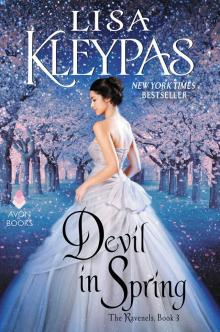 Devil in Spring
Devil in Spring Sugar Daddy
Sugar Daddy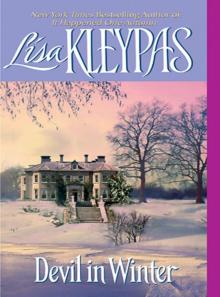 Devil in Winter
Devil in Winter Dreaming of You
Dreaming of You Christmas Eve at Friday Harbor
Christmas Eve at Friday Harbor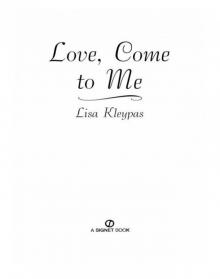 Love, Come to Me
Love, Come to Me Only With Your Love
Only With Your Love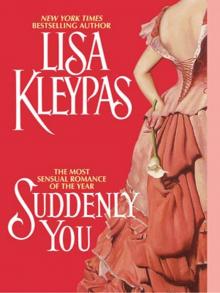 Suddenly You
Suddenly You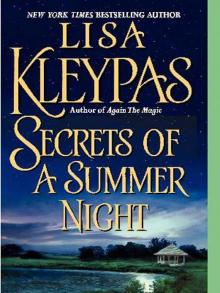 Secrets of a Summer Night
Secrets of a Summer Night Cold-Hearted Rake
Cold-Hearted Rake Where's My Hero?
Where's My Hero? Gifts of Love
Gifts of Love Married by Morning
Married by Morning Then Came You
Then Came You Wish List
Wish List Where Dreams Begin
Where Dreams Begin A Historical Christmas Present
A Historical Christmas Present Somewhere I'll Find You
Somewhere I'll Find You Scandal in Spring
Scandal in Spring Someone to Watch Over Me
Someone to Watch Over Me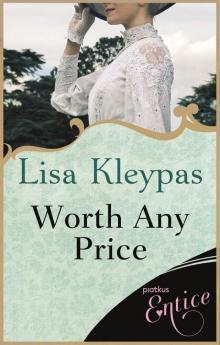 Worth Any Price
Worth Any Price Prince of Dreams
Prince of Dreams It Happened One Autumn
It Happened One Autumn Love in the Afternoon
Love in the Afternoon Devil's Daughter
Devil's Daughter A Wallflower Christmas
A Wallflower Christmas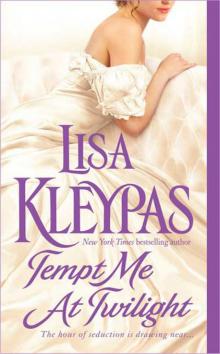 Tempt Me at Twilight
Tempt Me at Twilight Brown-Eyed Girl
Brown-Eyed Girl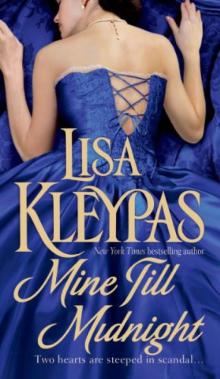 Mine Till Midnight
Mine Till Midnight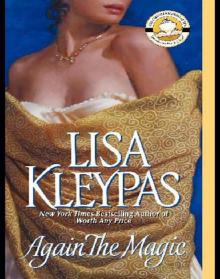 Again the Magic
Again the Magic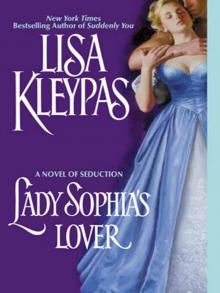 Lady Sophia's Lover
Lady Sophia's Lover Because You're Mine
Because You're Mine Midnight Angel
Midnight Angel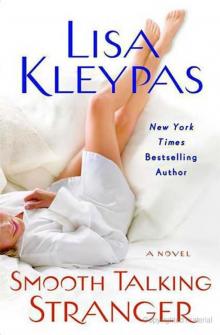 Smooth-Talking Stranger
Smooth-Talking Stranger Blue-Eyed Devil
Blue-Eyed Devil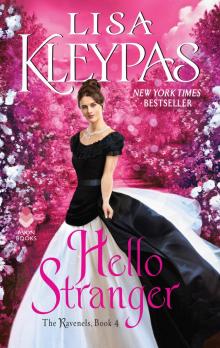 Hello Stranger
Hello Stranger Dream Lake
Dream Lake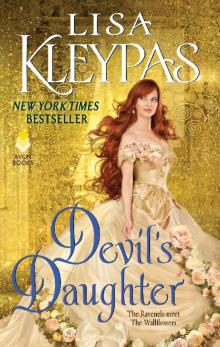 Devil's Daughter: The Ravenels Meet the Wallflowers
Devil's Daughter: The Ravenels Meet the Wallflowers A Christmas to Remember
A Christmas to Remember Smooth Talking Stranger
Smooth Talking Stranger Crystal Cove
Crystal Cove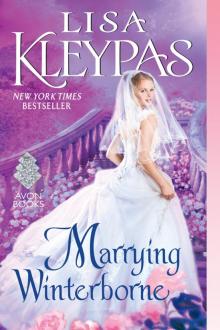 Marrying Winterborne
Marrying Winterborne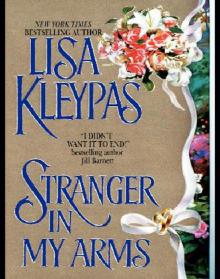 Stranger in My Arms
Stranger in My Arms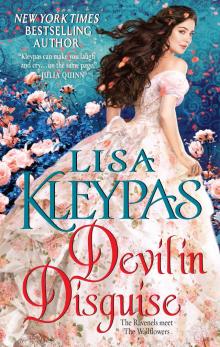 Devil in Disguise
Devil in Disguise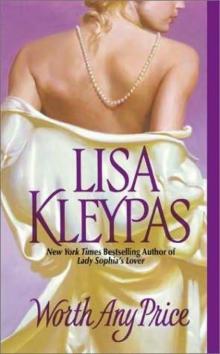 Worth Any Price bsr-3
Worth Any Price bsr-3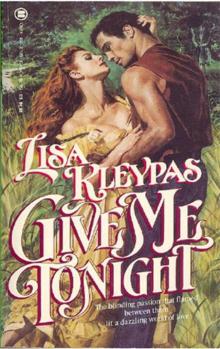 Give Me Tonight
Give Me Tonight Rainshadow Road fh-2
Rainshadow Road fh-2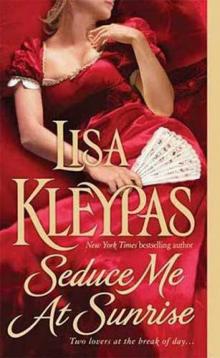 Seduce Me At Sunrise
Seduce Me At Sunrise I Will
I Will Someone to Watch Over Me bsr-1
Someone to Watch Over Me bsr-1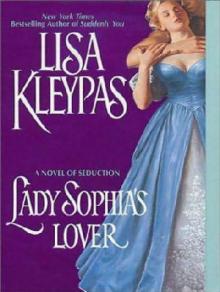 Lady Sophias Lover bsr-2
Lady Sophias Lover bsr-2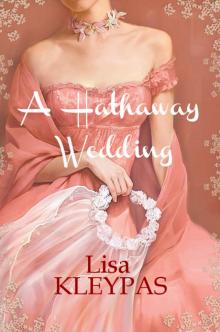 A Hathaway Wedding
A Hathaway Wedding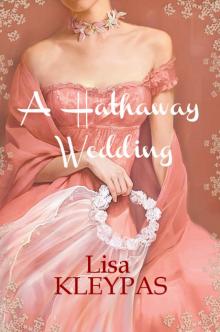 A Hathaway Wedding (Hathaways Bk2.5)
A Hathaway Wedding (Hathaways Bk2.5) Worth Any Price - Bow Street 3
Worth Any Price - Bow Street 3 Christmas with Holly
Christmas with Holly